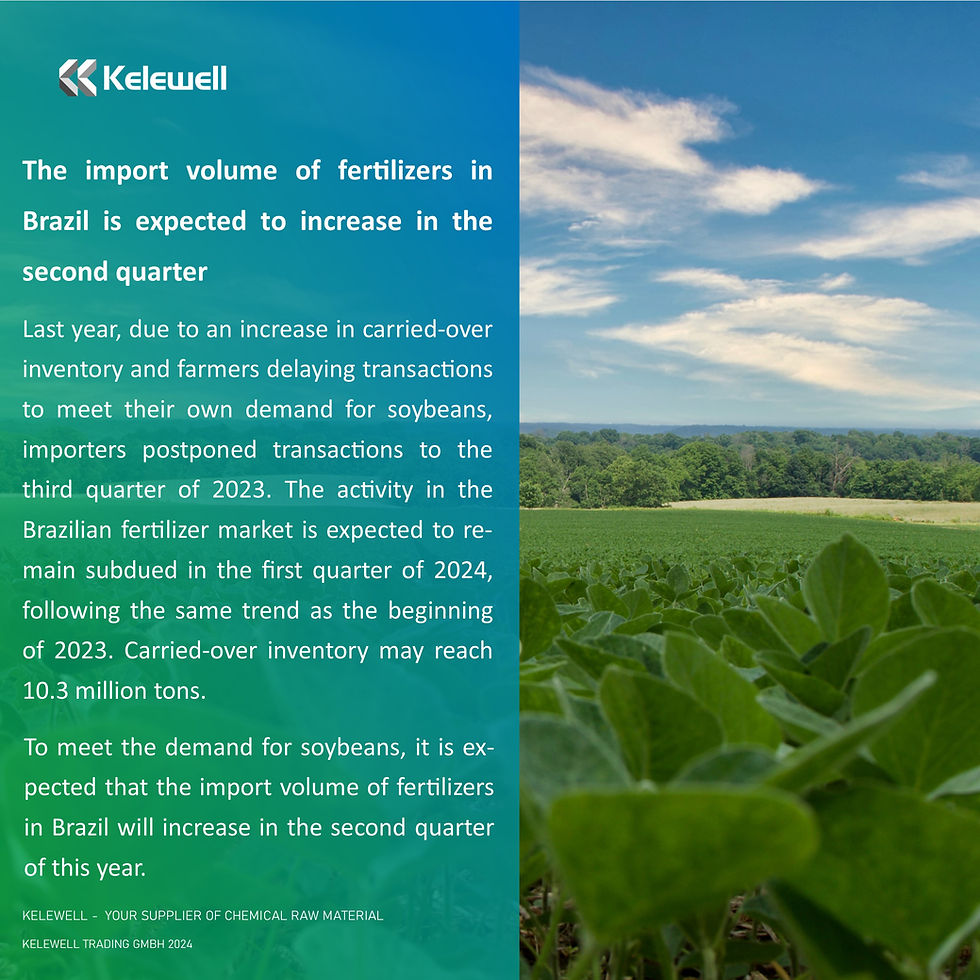To meet the demand for soybeans, it is anticipated that the import volume of fertilizers in Brazil will increase in the second quarter of this year.
Last year, due to an increase in carried-over inventory and farmers delaying transactions to meet their own demand for soybeans, importers postponed transactions to the third quarter of 2023. The activity in the Brazilian fertilizer market is expected to remain subdued in the first quarter of 2024, following the same trend as the beginning of 2023. Carried-over inventory may reach 10.3 million tons.
It is expected that potassium chloride will account for 24% of the total carried-over volume in Brazil, approximately 2.5 million tons, marking the highest fertilizer quantity after the record-breaking imports in 2023. Driven by deliveries in December, Brazil's potassium chloride import volume in 2023 increased by 14% compared to the previous year, reaching 13.5 million tons. However, potassium chloride imports were cautious at the beginning of 2023, peaked in August, and remained tight in the second half of the year. Favorable barter prices may encourage farmers to re-enter the market earlier this year, possibly leading to earlier imports.
Compared to phosphate, the barter prices for potassium fertilizers are more advantageous to farmers, as the price of potassium chloride has dropped more sharply than the price of 11-52 monoammonium phosphate. On January 11th, the CFR price of Brazilian potassium chloride decreased by 43% from $533 per ton, while the CFR price of monoammonium phosphate decreased by 15% from $655 per ton. Additionally, since early December, fertilizer freight rates have been on the rise, a trend expected to continue into early 2024, as there is a significant amount of fertilizer available at Brazilian ports for trade and clearance.
Despite the potential reduction in soybean production due to the adverse effects of the El Niño weather phenomenon, the yield is still expected to set a record, with final inventory reaching 3.6 million tons, surpassing the 3.4 million tons from a year ago. To meet the demand for soybeans, it is expected that the import volume of fertilizers in Brazil will increase in the second quarter of this year.
Attention: The above information is for commercial reference only due to the diversity of information collected, and Kelewell is not responsible for the authenticity of the data.

Comments